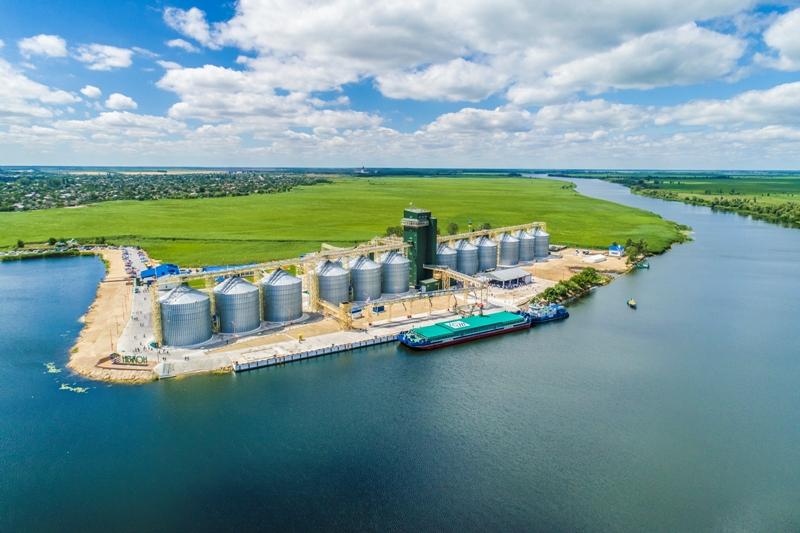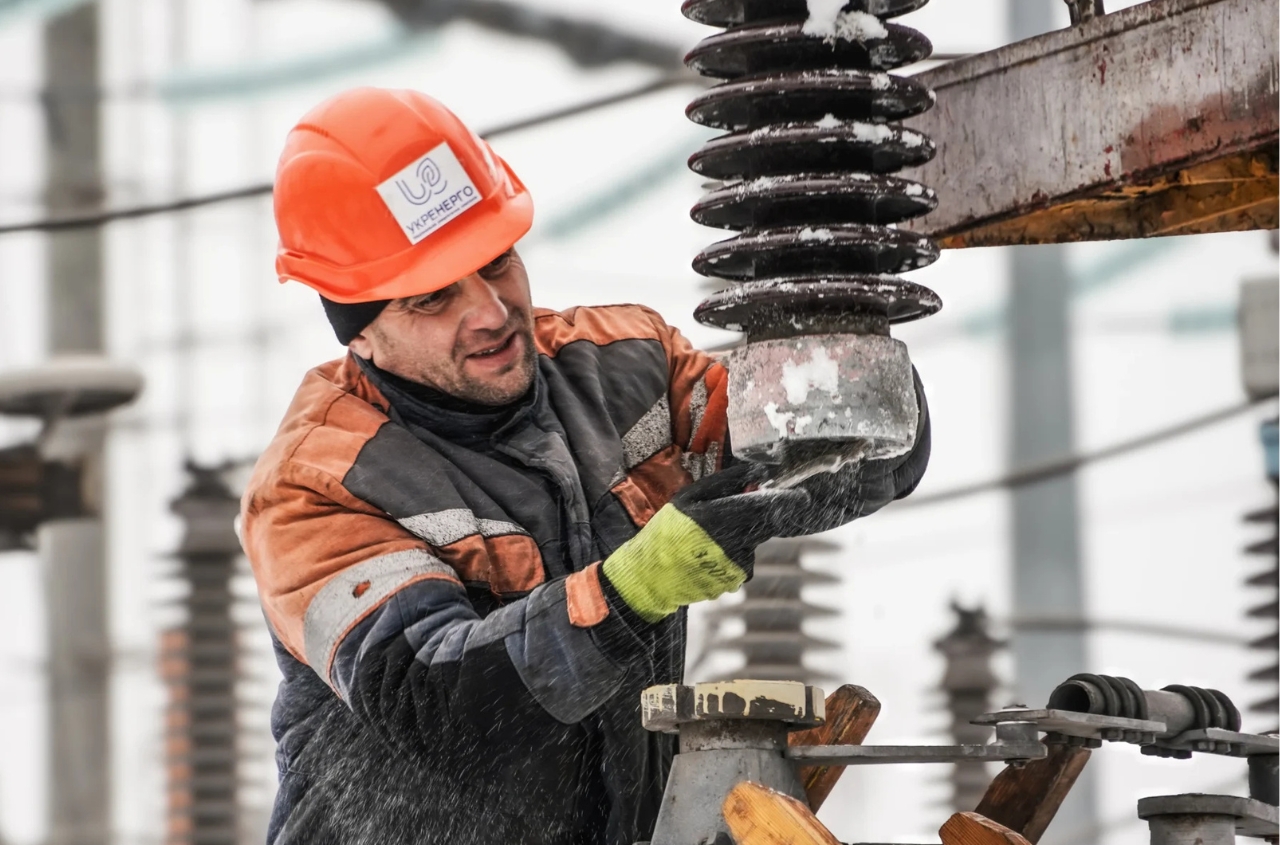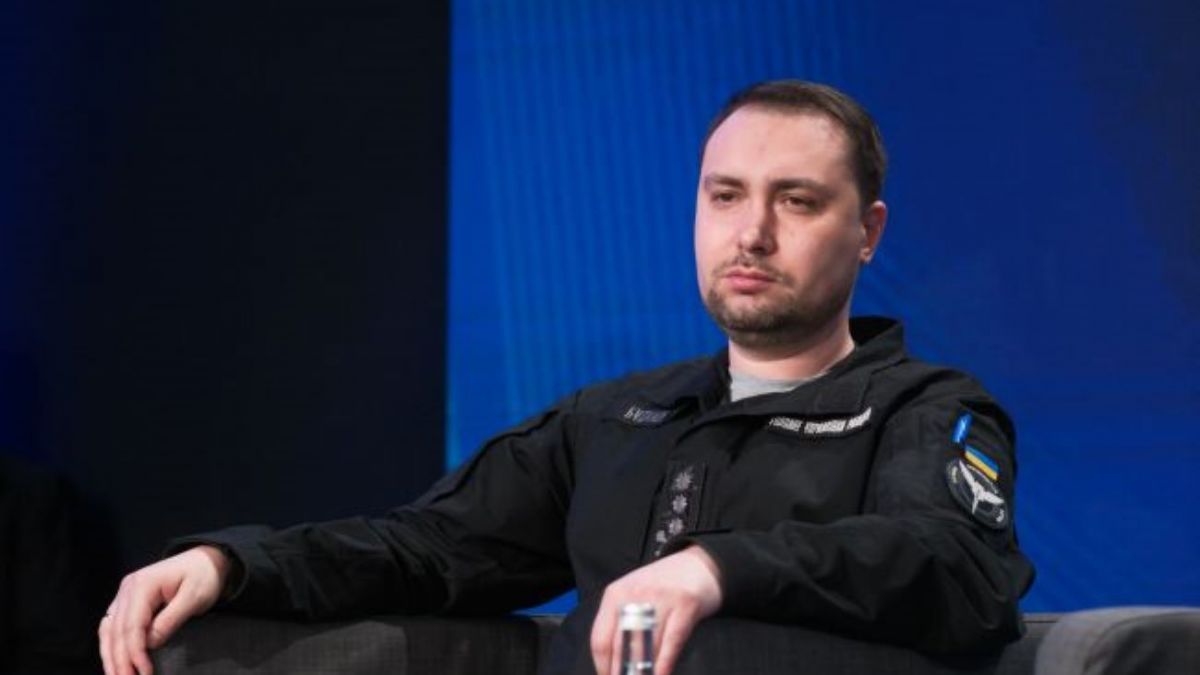Andriy Vadaturskyy is the chief executive officer of NIBULON, one of Ukraine’s largest agricultural companies, since August 2022. He succeeded his father Oleksiy Vadaturskyy, the founder and longtime CEO of Nibulon, who was killed with his wife Raisa, on July 31, 2022, when his home in Mykolaiv was hit by a Russian missile.
He accepted to be interviewed by our Editor-in-Chief Ugo Poletti.
This war injured particularly your city Mykolaiv, your company Nibulon and your family. Your father Oleksiy, founder of the group, and your mother Raisa were premeditated murdered in July 2022 by Russian military, who targeted your parent’s home. Our first question is: what makes you continue the work of your father after such a tragic experience? Where did you find the motivation not to give up?
It is the first time in seven months since I became the CEO of my Company that someone is asking me why I decided to continue. First of all, I am from a professional family, my mother and father were from the Soviet Union in the grain handling industry. I was grown up listening to their professional conversations in the kitchen during dinner. Secondly, the company was established in 1991, basically 31 years ago, and I have been working in the company for 14 years, before becoming member of Parliament. This is a kind of combination, from the first and second point. I know how hard my father was working to create something. Nibulon is a kind of child, is like my brother, and he (my father) was not working just for the money; he was working for creating something, to solve the problems, to realise himself. We have been here since the beginning of the independence of Ukraine and we have passed through many different situations, economic activities. From the time when nobody wanted even to rent the land, because it was unprofitable, to another extreme when people wanted to take over your company, including the government. So we were passing through many different stages and we have survived. And of course it is my duty to continue. And particularly, in this difficult time, during the war, this is an obligation toward the people: we have 6.000 employees, it’s a big family. We have an obligation towards our banks, that we respect. We are grateful for their contribution because together with them we could build this company. We have been investing, we have solved many economic issues like transportation. We reduced the costs of transportation, we provided the value, we provided a function to the market. I see the value. When sometimes I have a conversation with the banks or the investors, they ask me how do you evaluate you company. And I proudly say that now I can evaluate my company better. Because I understand how important it was before the war and what kind of function it performed before the war.
In these months, Nibulon worked to realise a new terminal in Izmail, the Ukrainian port on the Danube River. Why this decision during the war, in a tough moment for work conditions and for financing?
Because, basically, when you have an activity: vessels, contracts, the grain which is moving into the wagons and the trucks, you have the farmers who delivers the grain, who were stopped in the paying because the finance stopped to give the credit lines in Ukraine. You have to export grains, you need the money and you need to save the salaries. So, what to do? My father and me visited different places on the border, trying to solve the issue. We understand the logistics, we understand how to solve it and we have found the solution in Izmail. My father decided to invest and actually the whole preparation of investment from different stages started in June. And actually it is operating now. Even here it’s impossible to make predictions for today, tomorrow or the next months. Only you evaluate the risk associated to the bridge (in Zatoka) which was targeted, close to ten times. How can you plan the logistics? Because the railways cannot keep going, the bridge is destroyed, how can you solve the issue? How can you perform the contacts? How can you repair it? What is the fixing period? It’s impossible to have business plan. It’s impossible to have the money, because the banks are not financing. On one hand, there is a huge help from the international society but not at the market level, because it’s a government to government. We are talking about billions, but it is impossible today due to the war, due to the war risk or political risk staying in Ukraine, nobody is financing Ukrainian business today. There are either small donations, or the government. But there nothing between and there is no programme. The message that we are trying to deliver to the world is: we ask G7 to provide the bank guarantees, to cover the risk because, on one hand they helped to create the green corridor, they have helped to create the solidarity line, but there is no financial solution. So what we ask is to assist with a financial corridor. We are not asking for money, because we are entrepreneurs. Basically, what we ask is to provide rules to unblock debts by providing financial guarantees. In this way many banks may go to the existing clients and will provide the fresh money for the reconstruction, because until the financial situation is blocked, it is very difficult to rebuild. It is not rebuilding we need, now. First of all we need to save the business because otherwise the business will not survive and it will cost much more to the whole society to start a new business. So our message is to save the business today. Providing the liquidity, providing the guarantees, and to create competition, otherwise tomorrow business will stop. Basically the government should rely on the taxes, which the business have to pay. That’s way we need to support the business to pay the taxes and to make the country self sustainable. If you do not have the possibility to take care of the new flow of grain, you need to create another way for the grain. That’s why we decided to invest in the new terminal and to create the security, to have a window, even if it is more expensive today but it is a window and we can plan at the future trade. It was a great decision by my father and I cannot imagine Nibulon today without Izmail. It is a real survival kit for the company and for the people.
Mykolaiv is one of the most damaged Ukrainian cities due to continuous Russian shelling. Denmark has offered to take care of the recovery of your port city and created a programme for Danish investments and companies for the recovery. How this Denmark’s recovery plan is going to impact on the future of the city and your company’s activity?
I welcome this decision. I welcome that some country is taking the responsibility over. It is a good sign. I welcome a complex approach. Because it is not like one fund, or NGO, or a company taking care of the hospital, the school. Of course, it is good. But to have a systematic approach, this is something new. Only if there is a plan and a system you can have the results. It could be a good example for any other country to find their competitive advantage in their local markets, where they have a strong business, strong interest and to come in Ukraine and to take care about the cities or about the industries. For example, from my experience the Embassy of Denmark in the last couple of years was in connection with new technologies and with the shipbuilding. That’s why I have visited this Danish shipping company and we were planning before the war a reconstruction of the shipyard, in order to stop building ships for the navy and for Ukraine in general. We have some good projects and actually the financing agreement, already. Denmark has already signed a Memorandum of Understanding and we are planning to develop something. Of course, this plan was interrupted due to the war, but still Denmark has a competitive advantage and know-how on the shipbuilding, the river navigation, and new technologies. So, I hope that this community could benefit from the experience that the Danish company can bring to Mykolaiv region and Ukraine as well.
You have many times highlighted the big problem of demining the fields to the international community. Some countries promised already to send equipment and specialised staff. Is there already a specific plan for the demining of Mykolaiv and Kherson regions by some country?
There are two issues: one is to demine the land and agricultural fields; of course, there are many mines in formerly occupied schools, hospitals and roads, that have to be taken care of, but we are talking basically about the fields, about the rivers and the ports. The navigation roads. What we have done: we have created a department, which is going to deal the cleaning of the territories. We have 25.000 hectares to demine for our company. Of course we are ready to provide the service to the communities. To the local businesses and farmers, as well. And we have already started the construction of the first state ship for emergency services to demine the waterways, because a lot of mines are staying in the river and we need to clean it as well. And I can tell you that demining will take years and years. There is a rule: one day of war is one month of work for demining. We are already talking about 30 years of demining. As at today, because we had a war for one year and the problem is that Russia is using old shells, which have a 30% rate of not explosion. That’s the problem because basically, what exploded in the field is not a problem, but the problem is what is not exploded and you cannot see it. It can explode in one or five years time. So, the world has to spend money to teach and assist the Ukrainians to demine, because you need to bring back this 30% of the farmland to the production. Because today the world is busy in exporting what has been produced, but nobody is talking about the situation of what are we going to do after. Ukraine has produced this year minus 40% of wheat and minus 50% of corn. We will see the effects in 2024 and 2025. Then the price will be much higher, and how to fight the starvation in the world? The food deficit is two of six: first, to achieve the efficiency of the remaining land; secondly, to demine and bring back into the production lands that have to be demined. That’s the way.
The world was informed about the theft of Ukrainian grain by Russian traders. Thanks to the logistics data is possible to identify the operators who are involved in this criminal trade. How the international community is reacting to this issue? Which should be an appropriate penalty for such illegal dealers?
It’s a good question actually, because we understand what is going on. We do not have such instruments from satellite images, pictures, cameras, but we have the signals on the sea and the flow of the goods. And I am impressed by the investigations that journalists have done, from FT to WSJ. It’s a great contribution. And after the articles were published, the private sector blacklisted the Russian companies which were involved. But the problem is that those Russian companies have changed their names and still trade on the market, not in the private sector, but they sell to the state companies in Turkey and Egypt. And the pity is that, for some companies we have the sanctions, for some is just a reputational risk, and some are untouched, but actually the government level is supported. And it is even worse, because Egypt is buying on the tender from the blacklisted company and gets a help from the World Bank, because the World Bank is providing the grants of credit lines to assist the Egyptian government to buy this grain. And we are talking about let’s say couple of dollars more per tons, which is basically 300.000 dollars, and then you would have avoided purchases from the blacklisted companies. And that is why I think the sanctions are not fully working. And that is why we asked the western society to avoid the exceptions and to close those loopholes, because, in this case, the aim will be achieved from those sanctions, much bigger than otherwise. Then we prolong the support of those companies, who are involved in the theft and the criminal world and the part of stealing process involved in that. On the other side, those sanctions are reflected on the Ukrainian grain. Even if we want to export via the western side, via the solidarity lines, the banks are afraid to finance the grain even outside of Ukraine, because of the risk of the grain being stolen. It is a kind of another extreme. So on one hand, there is no real punishment for the Russian companies, who were involved in that grain theft, but on the other side, because there is not 100% guarantee that it was stolen and the banks cannot control what kind of grain, you have to prove it. This is a kind of strange result of those sanctions. We need to work on them more. Carefully.
Among the many bad memories of this war, there are also some positive facts that we will remember and will make us more optimistic about the future. Can you name one positive fact, which happened to you?
Basically the war is providing the opportunities, it is the first thing. Great opportunities. You should be ready for that. Another thing is that you understand better who is who. And it includes the partners and the banks. Because some banks are really supporting you, and some banks go into arresting your accounts, taking the properties. It seems like there is no war in Ukraine. The war is an extreme, but the extreme cases we learn as well. So that’s a good thing that we learn about the partners, we learn about the markets, we learn about opportunities, about our employees. So it’s a great windows for opportunities. To exploit the future when we survive.






















